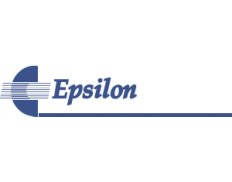Share
Print

For this TOPIC, EPSILON Malta Ltd (www.epsilonmalta.com) can offer: Dependably cover the entire spectrum of GeoInformatics and Maritime sector through Copernicus Services, Earth observation solutions, climate change (1) digital twin technology, (2) Life Cycle Analysis, (3) DSS technology based on operations research, (4) Enviro-Impacts of optimal solutions, (5) Contribution to the “Impact section” of the Project (section 2) -> Info Prof. M. Bonazountas, bonazountas@epsilon.gr
Programme: Horizon Europe Framework Programme (HORIZON)
Call: Border Management 2022 (HORIZON-CL3-2022-BM-01)
Topic: Improved underwater detection and control capabilities to protect maritime areas and sea harbours
ExpectedOutcome: Projects are expected to contribute to some or all of the following expected outcomes:
Scope: Security of maritime infrastructures and transport is key to support the movement of people and trade to, from, and within Europe. Furthermore, it is important to strengthen capabilities for security in and of sea harbours and of their entrance routes, and detection, prevention and response to illicit activities in and near sea harbours, including in the underwater sea space. Both legal and illegal activities in the maritime domain increase and become more sophisticated and this presses on security practitioners to build and improve their capabilities to keep up and fulfil their tasks in the future.
A particularly critical environment would include the abilities to detect and act below the water surface. Possible threats concealed below the water surface should be detected. Criminal organizations for example have the modus operandi of hiding narcotic cargos under the water surface of large and medium-sized vessels. Detection and response capabilities against active threats below the surface (such as terrorist attacks against ships or harbour infrastructures) should also be developed. Security controls and fiscal manifest verifications on closed containers and cargo should be supported by information gathered below water surface.
Research could develop solutions to detect and identify anomalies below the water surface and/or automatically assess for below the water surface threats to a ship at harbour entrance and/or a pier. Projects should demonstrate, test and validate solutions working from detection to minimisation of threats from below the water surface. Research and innovation activities should focus on delivering advanced autonomous or semi-autonomous vessel screening capabilities (detection of underwater smuggling – for example in cylindrical containers).
Research proposals should consider, build on if appropriate and not duplicate, previous research, including but not limiting to research by other projects funded by the Framework Programmes for Research and Innovation.
In this topic the integration of the gender dimension (sex and gender analysis) in research and innovation content is not a mandatory requirement.
See more information here
